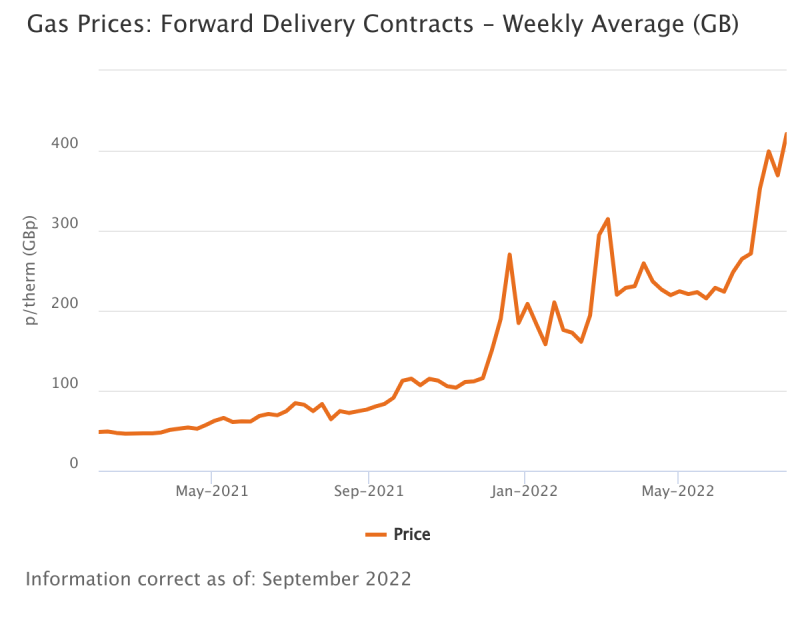The new UK prime minister Liz Truss is taking over at a difficult time. The war in Ukraine has destabilised the energy markets sending gas prices sky rocketing, meaning consumers and businesses are facing up to a bleak winter.
Action from the government is expected shortly with speculation in the media suggests that households could see their bills capped at the current level. Some experts have put the total cost of as much as £130 billion over the next 18 months. At this stage we don’t really know how much support businesses will get.

This lack of clarity has been a big bone of contention for hospitality owners, operators and investors. Not only will businesses be on the hook for huge rises in their own costs but because consumers are feeling the squeeze they are likely to struggle in terms of revenue.
Most hotels are also still feeling the after-effects of multiple lockdowns since the emergence of Covid-19 in early 2020. Some have managed to recoup lost earnings with the reopening of tourism but staffing and inflation have caused other problems.
Heading into winter, the potential cost of energy is front of mind for the industry.
One hotel in the Hebrides is likely to see its annual electricity bill rise from about £25,000 to £120,000. Lionel Benjamin, co-founder of Ago Hotels, told Hospitality Insights that his budget properties were operating with energy costs between 8% to 12% of total operating costs.
“We have seen this increase to a staggering 30% of total costs, with some energy bills rising by 250% per cent where supply contract renewals have been required. As with many sectors Ago are conscientiously trying to mitigate the additional costs, through a variety of initiatives from working through a broker who assists us in negotiations with energy companies, to implementation of infra-red sensors, and reducing boiler temperatures. For certain hotels we are evaluating whether it will be financially viable to remain open through winter,” he said.
Benjamin wants a similar scheme to what has been mooted for households where the government in conjunction with the utility companies introduces a support scheme to reduce and cap utility costs.
The difficulty for the government is that such schemes are untargeted, helping those who don’t need it as much as those that do, but because time is so short there may be no other way.
"Hospitality is going to be split between those who have locked in energy prices and those that do not. Utility bills have rocketed from a small single figure % of revenue to becoming one of the largest cost lines in the P&L,” said Stuart Godwin, director at Lamington Group, which operates the extend stay brand room2.
“This will heavily impact businesses ability to remain competitive or even afloat.
“The government needs to look at a measured, targeted approach to assisting those that have been and will be hit the most vs a blanket approach that will assist all where they may not require it."
VAT and business rates cut
Aside from action on energy prices, one of the most popular suggestions from the industry is a VAT cut from the current rate of 20%.
Newspaper reports suggest that Truss was considering a 5% cut. Back in 2008 in response to the global financial crisis Gordan Brown lowered the rate from 17.5% to 15% for a year.
Hospitality owners and operators would also like to see business rates cut.
“The pandemic showed what a critical role the hospitality sector plays in the UK's economic health, yet our industry is now facing an unprecedented set of circumstances and I see no plan or support from the Government as yet. A reduction in business rates and the reintroduction of reduced VAT would be a start; we need to see some action and we need to see it now,” said Peter Hales, managing director of hotel management company, Michels & Taylor.
The response to the Covid-19 pandemic showed that the government could act to dampen the worst effects of a crisis and while the looming economic disaster might not be on the same scale health-wise it has the potential to cause other problems.
As Michael Grove the chief operating officer of HotStats points out, the new prime minister should “take the fear out of the cost of living crisis by containing energy costs and thereby underpinning consumer confidence and in turn supporting discretionary expenditure”.